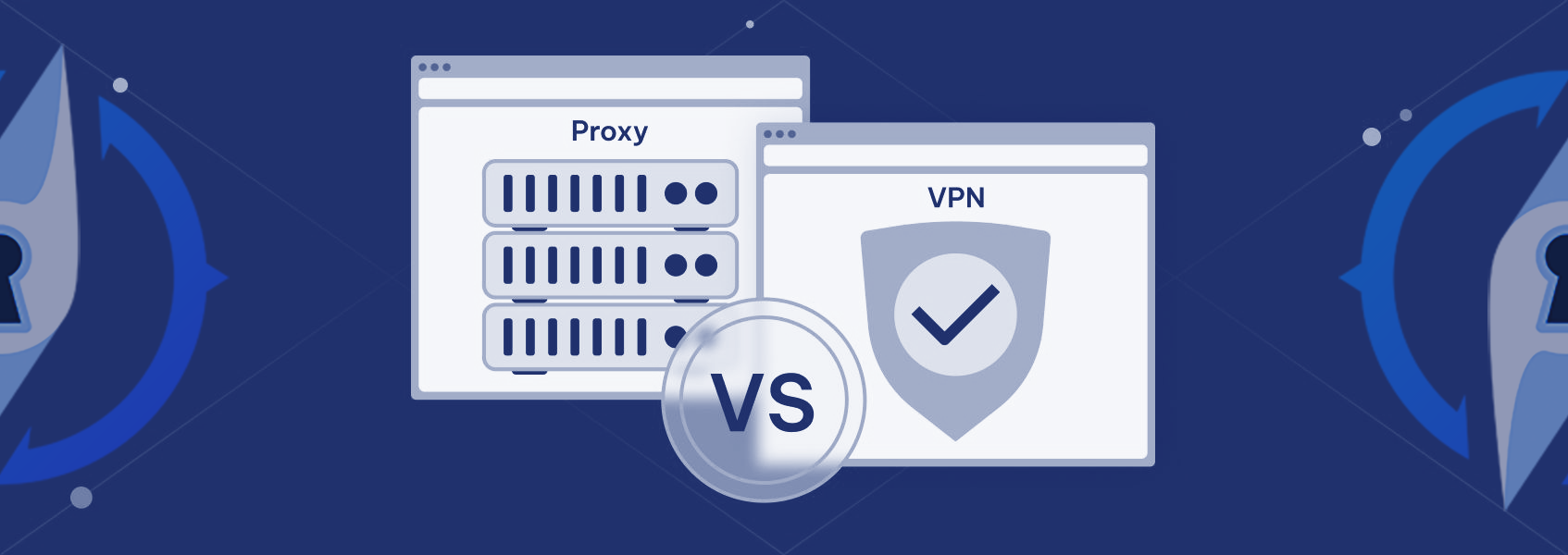
When it comes to fortifying the privacy and security of your internet connection, proxies and VPNs (Virtual Private Networks) typically emerge as the go-to options. Both these tools excel at safeguarding your online identity, leading many businesses, institutions, and individuals to use them interchangeably. However, they operate quite distinctively.
To decide on the most suitable tool for your browsing requirements, it’s vital to comprehend their differences. This article will clarify the concept of proxies and VPNs, as well as their similarities and differences, thereby enabling you to make an informed decision.
An Insight into Proxies
A proxy server acts as a go-between for a client and a server, equipped with a unique IP address based in your selected location. When you demand a resource like a web page, the request first goes to the proxy server and is then forwarded to the target server. Similarly, the proxy server fetches the required resource on behalf of the client.
This mechanism keeps your IP address concealed, thereby securing your online identity and privacy. The benefits of proxies encompass enhanced anonymity, circumvention of geographical content restrictions, and access to websites blocked by network administrators.
Decoding VPNs
Much like proxies, a VPN channels your traffic via a private server before dispatching it to the intended online destination. This arrangement causes your internet traffic to seemingly originate from a different IP address. Moreover, VPNs ensure substantial security by encrypting your traffic in the process.
When you install a VPN on your device, all your traffic is routed through it. While a proxy can replicate this, it also permits you to apply it to a single app or browser while using your own IP for everything else. This way, VPNs provide a comprehensive solution, whereas proxies offer more diverse functionality.
Even though some proxies also support encryption, VPNs are fundamentally built for this purpose. This feature enhances your online security, especially on public Wi-Fi networks, but also brings along certain drawbacks you should consider.
Proxy vs. VPN – Comparing and Contrasting
Given that 80% of people worry about their online privacy, it’s no surprise that these tools are in high demand. Although both can achieve the objective, their methods vary. Depending on your specific requirements, you may prefer one over the other.
In terms of similarities, both proxies and VPNs hide your actual IP address, enhancing your online anonymity and privacy. Now, let’s delve into their differences based on:
- Ease of Use: VPNs are generally easier to set up and operate as they’re aimed at individual users, unlike proxies which are often designed for businesses and professionals. Thus, proxies are ideal for commercial use-cases such as web scraping, ad verification, and SEO research. Conversely, VPNs are more suitable for ordinary internet users lacking technical expertise.
- Security and Speed: Encrypting your traffic improves security but can also slow down your internet speed. As VPNs always encrypt traffic, they ensure network safety but potentially reduce connection speed. Proxies, which don’t inherently slow connections, are more appropriate for high-bandwidth, low-latency activities like streaming, video conferencing, and gaming.
- Configuration Options and Versatility: While installing a VPN ensures all your traffic is directed through it, a proxy also allows you to configure it for a specific app or browser while using your personal IP for other activities. Therefore, VPNs provide a universal solution, whereas proxies offer wider functionality.
- Restrictions: Both tools can circumvent location restrictions to access region-specific content. However, certain websites, games, and streaming platforms like Hulu and Netflix prohibit VPN use. In these situations, proxies could be the ideal workaround, as their IPs are sourced from legitimate users and ISPs.
Concluding Remarks
The proxy vs. VPN debate doesn’t have a definitive winner. Both tools are effective in safeguarding your IP address and enhancing online privacy – the most suitable choice depends on your specific needs. Whether you opt for proxies or VPNs, it’s crucial to conduct thorough research and select a trustworthy provider with a proven track record.
Frequently Asked Questions (FAQs) about
What are the key differences between a Proxy and a VPN?
While both proxies and VPNs hide your actual IP address, the differences lie in how they function. A proxy server acts as an intermediary, forwarding your requests without providing encryption. VPNs, on the other hand, route your traffic through a private server and encrypt it, providing a higher level of security.
How does a Proxy work?
A proxy server acts as a middleman between your device (the client) and the server from which you are requesting resources. It has its own unique IP address, allowing your actual IP address to stay hidden and your online privacy to be protected.
How does a VPN work?
A VPN routes your traffic through a private server, making it appear as though it’s coming from a different IP address. This process includes encrypting your traffic, ensuring a high level of online security.
Which one is easier to use, a Proxy or a VPN?
VPNs are generally considered easier to set up and use for individual users without technical experience. In contrast, proxies often cater more to businesses and professionals, and may require more technical know-how.
Do both Proxy and VPN impact internet speed?
Encrypting your internet traffic, as VPNs do, can slow down your internet speed. Proxies, on the other hand, don’t inherently cause slowdowns and may be better for activities requiring high bandwidth and low latency, like streaming or gaming.
Can Proxies and VPNs be used to access region-specific content?
Both proxies and VPNs can be used to circumvent location restrictions and access region-specific content. However, certain platforms like Hulu and Netflix may block the use of VPNs. In such cases, proxies can be a suitable alternative as their IPs come from legitimate users and ISPs.





